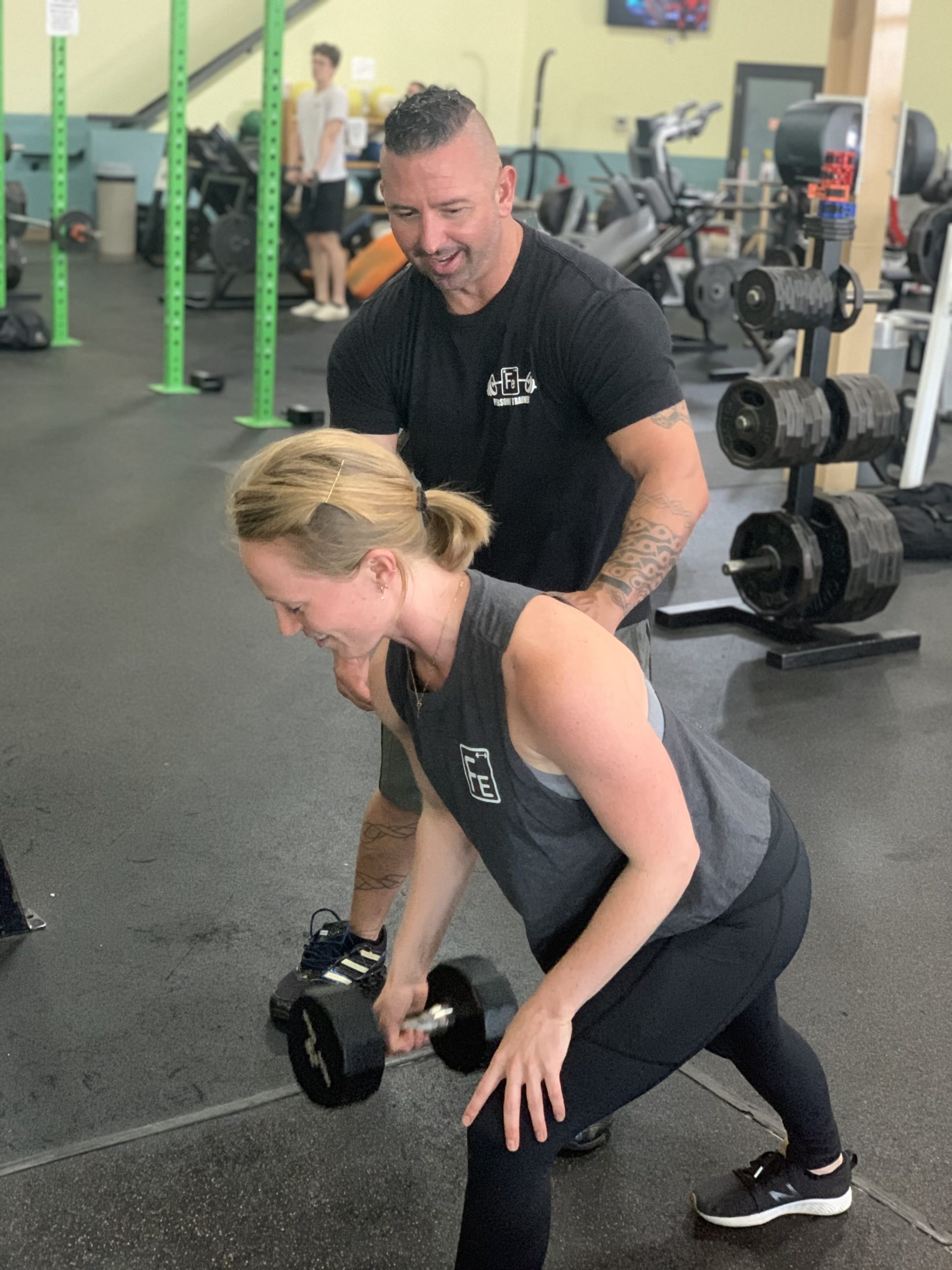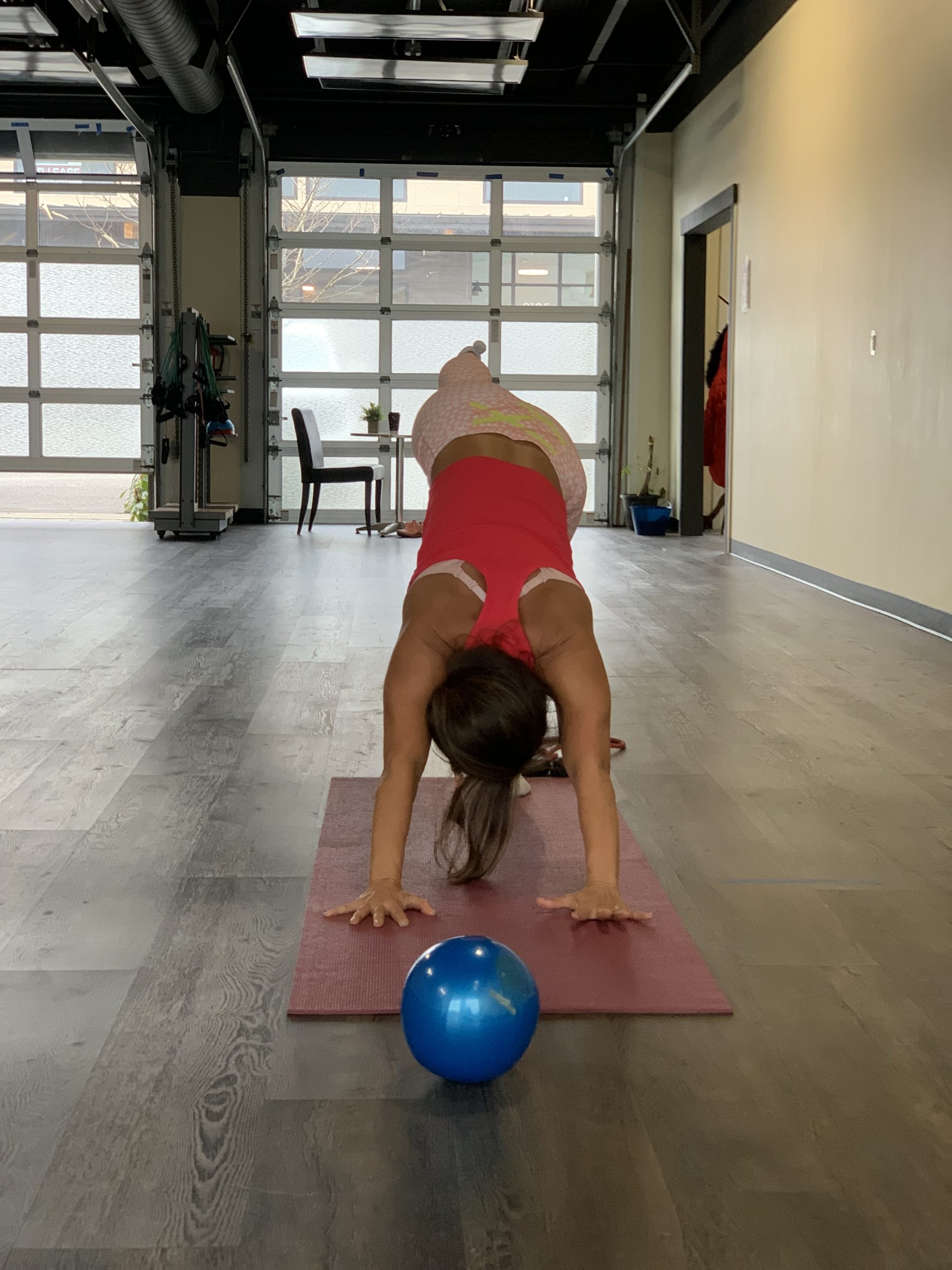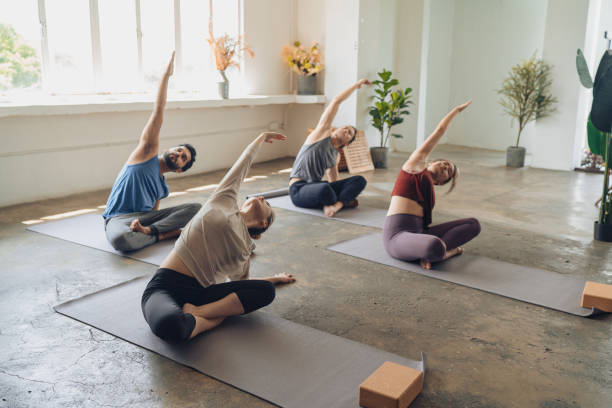
Are you ready to level up your fitness game with a strong training plan? Hiring a personal trainer from the gym could be the game-changer you need. But here’s the thing: “What should I ask a personal trainer?”
Finding the right one among many trainers is crucial. You don’t want to end up with someone who doesn’t understand your goals or pushes you too hard.
So, how do you make sure you’re asking the right questions? Don’t worry, we’ve got your back.
Qualifications and Certifications

When looking for a gym in Washington (Bellingham, WA), it’s essential to ask many trainers about their qualifications and certifications. Ensuring that your potential coach at the gym has the necessary credentials will give you peace of mind, knowing that you are working with a knowledgeable and skilled professional in fitness training.
Verify Their Credentials and Certifications
Before committing to a personal trainer, take the time to verify their qualifications. Ask for proof of their personal training certification, and make sure it is from a reputable organization. This certification ensures that they have undergone proper training and have met certain standards in the field.
Ask about Their Educational Background in Fitness Training
In addition to certifications, inquire about your potential trainer’s educational background in fitness training. A solid education can provide trainers with a deeper understanding of exercise physiology, anatomy, nutrition, and other essential aspects of health and wellness.
Inquire About Any Additional Specialized Certifications They Hold
While a general personal training certification is important, some trainers may also hold specialized certifications that can benefit you based on your specific goals or needs. For example, if you have high blood pressure or other medical conditions, finding a trainer with additional medical exercise or rehabilitation certifications could be advantageous.
Consider Their Experience Level
Alongside qualifications and certifications, experience plays a crucial role in assessing a personal trainer’s ability to help you achieve your fitness goals effectively. Ask how long they have been practicing as a personal trainer and whether they have worked with clients similar to yourself before.
Evaluate Their Teaching Style
Personal trainers must not only possess the right knowledge but also be able to effectively communicate with and motivate their clients during workouts. Inquire about their teaching style to ensure it aligns with your learning preferences and personality.
Assess Their Commitment to Ongoing Education
The health and fitness industry is constantly evolving, and it’s important for personal trainers to stay up-to-date with the latest research and techniques. Ask if they regularly attend workshops, conferences, or classes to expand their knowledge and skills.
Finding the right personal trainer with a strong training background and a comprehensive training plan is crucial for your fitness journey.
By asking about their qualifications, certifications, educational background, experience level, teaching style, and commitment to ongoing education, you can decide who will be the best fit for you in Bellingham, WA.
Remember that it’s not just about finding someone with the right credentials; it’s also essential to find a coach who understands your goals and can provide the support and guidance you need along the way, including through efficient minute-long training sessions.
What Questions to Ask Your Personal Trainer? Experience with Similar Goals
One of the most important factors to consider when choosing a coach is their experience with clients who have similar goals as yours. You want a coach who understands your specific objectives and has a track record of helping others achieve them successfully.
Whether you’re looking for a coach for one-on-one personal training (PT) or someone to guide you through intense 30-minute training sessions, finding the right person is crucial.
Start by asking the personal trainer or PT about their previous clients and if they have worked with individuals who had similar goals to yours, such as weight loss and overall fitness improvement. Discussing their experience will help you determine if they are the right coach for you.
Success Stories
It’s also helpful to inquire about success stories or testimonials from clients who have achieved their goals under the guidance of this personal trainer. Hearing about real-life examples of people who have achieved their goals with the help of a coach can give you confidence in their abilities.
Ask for references or contact information for past clients so that you can reach out and hear directly from them about their experiences with the PT and their minute training sessions.
Strategies
In addition to discussing past successes, it’s important to ask your personal trainer about any specific strategies or approaches they use to help you achieve your goals. Every client is unique, and what works for one person may not work for another. A good PT will tailor their methods to suit your needs and preferences as their coach.
For example, if accountability is important to you as a person, ask how the coach helps clients stay on track and motivated throughout their fitness journey. Do they provide regular check-ins or set up homework assignments?
Understanding how the coach keeps clients focused and engaged can give you insight into whether their approach aligns with your own needs as a client.
Don’t Be Afraid to Discuss Concerns and Limitations
Furthermore, don’t be afraid to discuss any concerns or limitations you may have with your personal trainer (PT). If you’ve experienced pain or injuries in the past, talk openly about these issues with your coach. See how the PT responds and explain how they can help you work around any challenges while still making progress towards your goals.
Remember that finding a great personal trainer (PT) is about their qualifications and certifications and the connection you feel with them. You’ll be spending a significant amount of time together, so finding someone you trust and feel comfortable working with is important. The coach-client relationship is crucial for success.
Training Philosophy and Approach
In Bellingham, Washington, understanding their training philosophy and approach is crucial for determining whether a coach or PT fits your fitness goals and overall lifestyle. Here are some important questions to ask when evaluating potential trainers: Are they the right coach for you?
Understand Their Overall Training Philosophy and How it Aligns with Your Own Beliefs
A personal trainer’s training philosophy is crucial when choosing a coach. It encompasses their core values, beliefs, and principles. Find a PT whose philosophy aligns with yours. If you prioritize functional training that improves everyday movements and overall strength, make sure your trainer shares this approach with you as a client.
Inquire About the Types of Exercises, Techniques, or Equipment They Typically Incorporate Into Their Programs
Different trainers or coaches may have varying preferences. By asking about these aspects, you can gain insight into the variety of exercises they offer as part of their training program.
Some trainers may focus more on traditional weightlifting exercises using barbells and dumbbells, while others might incorporate bodyweight exercises or utilize specialized equipment like kettlebells or resistance bands. It’s important to find a coach who aligns with your goals and preferences as a person.
Ask if They Prioritize Functional Training or Focus on Specific Muscle Groups
Functional training has gained popularity in recent years due to its emphasis on improving movement patterns that translate into everyday activities. If this aligns with your goals, inquire about how much importance the coach places on functional exercises such as squats, lunges, deadlifts, push-ups, and core stability work.
On the other hand, some individuals prefer a more targeted approach where specific muscle groups are isolated for hypertrophy or aesthetic purposes.
If this is what you’re looking for in a training plan, make sure your potential coach has experience designing workouts that cater to these goals. It’s important to find a person who understands your needs and can create a plan that suits you.
Finding the right personal trainer or coach in Bellingham, WA, can significantly impact your fitness journey. You can ensure that their approach aligns with your needs and preferences by asking the right questions about their coaching philosophy, exercise selection, and focus areas.
So take the time to interview different trainers in Bellingham, WA, and find the coach who will guide you towards a stronger and healthier lifestyle.
Tracking Fitness Progress
Tracking your progress with a personal trainer in Bellingham, Washington, is crucial. It helps you stay motivated, measure improvements, and make necessary adjustments to your workout routine. So, what should you ask a coach about tracking fitness progress?
Find Out How They Track Progress and Measure Results
One of the first questions to ask your personal coach is how they track progress and measure results. This will give you an idea of their approach and whether it aligns with your preferences. Some common methods used in the fitness industry by coaches include
- Body measurements: Personal trainers often take measurements of various body parts, such as the waist, hips, arms, and thighs to track changes in size.
- Weight: Monitoring weight can be helpful for those aiming for weight loss or muscle gain.
- Body fat percentage: Measuring body fat percentage gives a more accurate representation of changes in body composition.
- Muscle mass: Tracking muscle mass helps determine if you’re gaining or losing muscle.
What Should I ask a Personal Trainer?: Inquire About the Tools or Methods Used to Assess Improvements
Understanding personal trainers’ tools or methods to assess improvements can provide valuable insights into their expertise. Here are some common techniques employed by trainers:
- Fitness assessments: Trainers may conduct initial assessments to evaluate your current fitness level and set benchmarks for improvement.
- Movement analysis: Analyzing your movements during exercises can help identify areas for improvement and prevent injuries.
- Performance tests: These tests measure specific aspects of fitness such as strength, endurance, flexibility, or agility.
By asking about these assessment tools or methods upfront, you’ll better understand how comprehensive their evaluation process is.
Discuss How Often Progress Evaluations are Conducted
Regular progress evaluations are essential for monitoring your development effectively. Ask your personal trainer about the frequency of these evaluations. While it may vary depending on individual needs and goals, most trainers recommend assessments:
- Monthly: Monthly evaluations provide a good balance between giving your body time to adapt and tracking progress consistently.
- Bi-weekly or weekly: If you have specific goals or are training for an event, more frequent evaluations may be necessary to make timely adjustments.
Remember that the frequency of progress evaluations should align with your fitness goals and the trainer’s recommendations.
Tracking fitness progress is not only about numbers but also about how you feel and perform during workouts. A skilled personal trainer in Bellingham, WA, will consider both objective measurements and subjective feedback from clients to tailor their approach.
So, when choosing a personal trainer, make sure they prioritize your overall well-being and help you achieve your desired results.
Coaching Style and Encouragement
When choosing a personal trainer, it’s essential to consider their coaching style and the level of encouragement they provide. The right coach can significantly impact your fitness journey by helping you stay motivated and pushing you to achieve your goals.
Here are some key questions to ask when evaluating potential trainers in Bellingham, Washington:
Determine Their Coaching Style
Understanding a personal trainer’s coaching style is crucial to ensuring compatibility and effective communication. Some trainers adopt a motivational approach, while others may employ tough love tactics. By asking about their coaching style, you can gauge whether it aligns with your preferences and needs.
A great coach should be able to adapt their style based on the individual athlete they are working with. They should be able to identify what motivates you personally, whether it’s positive reinforcement or challenging you to push beyond your limits.
Ask About Support and Encouragement
Support and encouragement play vital roles in keeping you motivated throughout your fitness journey. Inquire about how the personal trainer provides these elements during training sessions as well as outside of them.
A good coach will create an environment that fosters growth and positivity. They should offer words of encouragement during workouts, acknowledging your progress and pushing you towards excellence. They should be available for guidance even outside of scheduled training sessions.
Inquire About Additional Guidance
While a personal trainer primarily focuses on exercise routines, many also offer guidance in other areas, such as nutrition advice and lifestyle changes. It’s worth asking if they provide comprehensive support beyond physical training.
Receiving nutritional advice from an experienced trainer can greatly enhance your progress toward achieving optimal health and fitness levels. Similarly, lifestyle changes like sleep patterns or stress management techniques can contribute significantly to overall wellness.
Remember that each trainer may have different areas of expertise outside of exercise routines; therefore, it’s important to find someone whose additional guidance aligns with your specific goals.
Program Customization and Meal Plans
It’s essential to find someone who can tailor their programs to meet your individual needs. A one-size-fits-all approach won’t cut it if you want to effectively achieve your fitness goals. So, before committing to a personal trainer, make sure to ask about their program customization and meal planning services.
Personalized Training Programs
As we dive into the question: “What should I ask a personal trainer?” one of the key questions you should ask is how personalized their training programs are. It’s important that they take into account your specific goals, fitness level, and any limitations or injuries you may have.
A good personal trainer will conduct an initial assessment to determine your current fitness status and design a program that suits you best.
Inquire about the types of exercises they incorporate into their routines. A well-rounded program should include cardiovascular exercises for endurance, strength training for muscle development, flexibility exercises for mobility, and possibly even specialized workouts based on your interests (such as yoga or Pilates).
By customizing the program according to your needs, the personal trainer can help you progress at a challenging yet manageable pace.
Meal Planning Services
Nutrition plays a crucial role in achieving optimal results from your fitness routine. Proper nutrition not only fuels your body but also aids in recovery and helps maintain overall health. Therefore, it’s worth asking if meal planning is included in the personal trainer’s services.
A knowledgeable personal trainer should be able to provide guidance on what foods are best suited for your goals. They can create meal plans that align with your dietary preferences and restrictions while ensuring you get the nutrients necessary for optimal performance.
Whether you’re looking to lose weight, build muscle, or improve overall wellness, having a customized meal plan can make all the difference.
Ask if adjustments can be made to accommodate any dietary restrictions or preferences you may have. For example, if you follow a vegetarian or vegan diet, it’s important that the meal plan include suitable alternatives to meet your nutritional needs. A flexible personal trainer will be able to work with you to create a meal plan that fits your lifestyle and dietary requirements.
What Should I Ask a Personal Trainer?: How Do I Prepare for My First Training Session?
So, you’ve decided to take the plunge and start working with a personal trainer in Bellingham, Washington. Congratulations on taking this step toward improving your fitness! Now that you’re ready to embark on this exciting journey knowing how to prepare for your first training session is important.
Here are a few key points to consider:
Find Out What Clothing or Equipment You Should Bring to the Session
Before heading to your training session in Bellingham, WA, ensure you have the appropriate attire and equipment. Different types of workouts may require specific clothing or gear, so it’s essential to check with your personal trainer beforehand.
For example, comfortable workout clothes and proper gym shoes would be suitable if you’re doing weightlifting exercises. On the other hand, if you’re planning on doing outdoor activities like hiking or running, appropriate footwear, and weather-appropriate clothing would be necessary.
Inquire if there are Any Specific Instructions Before Starting
To ensure a smooth start to your training sessions in Bellingham, ask your personal trainer if you need to follow any specific instructions or guidelines before beginning.
They may advise you on things like avoiding heavy meals right before a session or staying hydrated throughout the day. By understanding these recommendations ahead of time, you can optimize your performance during each training session.
Discuss Any Necessary Paperwork or Health Assessments that Need to be Completed Beforehand
Before diving into your first training session in Bellingham, WA, it’s common for personal trainers to request some paperwork or health assessments from their clients. This helps them understand your current fitness level and any underlying health conditions that might impact your training program.
Be prepared to fill out forms detailing your medical history, previous injuries, allergies, and other relevant information.
Set Realistic Expectations and Establish a Starting Point
During your first training session, take the opportunity to discuss your goals and expectations with your personal trainer. They will help you set realistic targets based on your current fitness level and desired outcomes.
It’s essential to establish a starting point so that progress can be tracked effectively. This may involve measurements such as body weight and body fat percentage or taking initial fitness tests like timed runs or strength assessments.
By addressing these key points before your first training session in Bellingham, Washington, you’ll feel more confident and prepared for what lies ahead. Remember, each session is an opportunity to learn and grow, so embrace the journey and make the most of every minute spent with your personal trainer.
Conclusion: What Should I Ask a Personal Trainer?
To get the most out of your personal training sessions, it’s crucial to ask the right questions and find a trainer who aligns with your goals and preferences.
Remember, finding the right personal trainer is crucial for your fitness journey. If you’re wondering, “What should I ask a personal trainer?” consider their answers and trust your instincts when making a decision. With the right trainer by your side, you’ll be well on your way to achieving your fitness goals.



